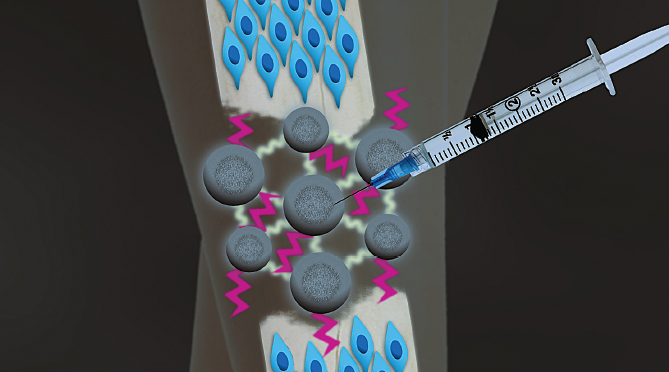Science in Service
of
Medicine
President's Letter
Metrics 2019
Cycle of a Cure
Discovery to Clinic


Introduction

Precision Medicine


Introduction

Tracing Tau to Tackle Alzheimer's Disease

Translational Imaging Center Revamps for Revolutionary 7T MRI

Hope for Slowing ALS

The Heart of Progress: Innovative Valves Create a Legacy for the Future

Test-Driving Carbon Fiber Materials in Space

Lab-on-a-chip Shines Light on Bystander Effect

Creating an Antibody to Fight Silent Killers

A New View of Strep

Translational Luminaries
result



President’s letter
2019 Metrics
Cycle of a Cure
Visionary Gifts

Discovery to Clinic

Innovative Education

Translational Luminaries
Introduction
Building Blocks for Bone Regenration
RNA Therapeutics
Mobile App for Healthy Habits for Breast Cancer Survivors
Designing a Flexible Approach to Breast Reconstruction
Introduction
Tracing Tau to Tackle Alzheimer's Disease
Translational Imaging Center Revamps for Revolutionary 7T MRI
Hope for Slowing ALS
The Heart of Progress: Innovative Valves Create a Legacy for the Future
Test-Driving Carbon Fiber Materials in Space
Lab-on-a-chip Shines Light on Bystander Effect
Creating an Antibody to Fight Silent Killers
A New View of Strep
result

The Sepsis Early Recognition and Response Initiative

Stephen L. Jones, MD, MSHI, John F., Jr. and Carolyn Bookout Distinguished Professor in Surgical Quality and Outcomes Science, Department of Surgery, and associate research professor of outcomes research, Center for Outcomes Research, implemented the Sepsis Early Recognition and Response Initiative (SERRI) to reduce the human and financial impact of sepsis by preventing progression of the disease into a more morbid or fatal stage of severity. Through education and training, the SERRI team created a culture of sepsis awareness across 14 different sites and in three very different health care settings.
The SERRI project team developed training courses in sepsis awareness, training 11,266 health care workers including nurses, nurse practitioners, pharmacists and patient care assistants. The three core project activities to achieve sepsis awareness included routine bedside screening of patients; training and education of bedside nurses, sepsis responders, leadership and medical staff at all facilities; and continuous monitoring and reporting of clinical performance and outcomes measures from all facilities. Education, training and awareness across the care continuum were the main driving factors in creating a shift in culture. SERRI, in essence, created a team of knowledgeable health care professionals that will share their knowledge broadly to the great benefit of patients and health care organizations.
SERRI was successful in reducing the overall severity of sepsis and septic shock in six of eight acute care facilities. A reduction of all-cause sepsis-associated mortality was reduced in seven of eight acute care facilities. In addition to these achievements, more patients returned home instead of being routed to long-term acute care facilities when compared with the pre-SERRI baseline. The team achieved better health care with cost reductions to patients during the project period by being discharged to their homes rather than acute care facilities.
The SERRI initiative was so successful that Jones was invited by Adam Boehler, senior advisor to the Secretary of Health and Human Services on Value Based Transformation, to attend a June 2019 planning meeting to share expertise on sepsis care to impact future policy solutions. The purpose of the meeting was to consider a range of viewpoints, research findings, and policy solutions to help inform implementation of the HHS Value-Based Transformation Initiative’s exploratory priority on preventing sepsis.
More from Discovery to Clinic
Contact Us
© 2021. Houston Methodist, Houston, TX. All rights reserved.
Privacy & Disclaimer
.











